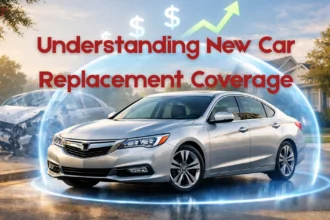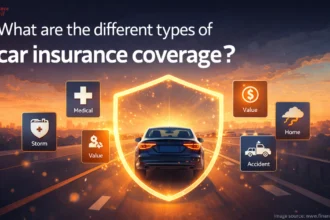Introduction

Student loan debt has become a pressing concern for millions of Americans, with outstanding balances reaching historic levels. According to a 2024 Bankrate pre-election survey, 29 percent of Americans consider student loan debt a national crisis. While the temptation to stop making payments might be strong when facing financial hardship, the consequences of never paying your student loans can be severe and long-lasting.
This comprehensive guide explores what happens when you stop paying your student loans, the differences between federal and private loans, and the various options available to help you avoid or recover from default.
The Progressive Stages of Student Loan Default
Stage 1: Delinquency
Your student loan becomes delinquent the day after you miss your first payment. While this initial missed payment might seem insignificant, it marks the beginning of a potentially devastating financial spiral. Here’s what happens during the delinquency phase:
- Immediate Impact
- Late fees begin accumulating
- Interest continues to accrue on your unpaid balance
- Your loan servicer may contact you about the missed payment
- Credit Reporting Timeline
- Federal loans: Reported to credit bureaus after 90 days
- Private loans: May be reported as soon as 30 days
- Each reported late payment can remain on your credit report for up to seven years
Stage 2: Default
The transition from delinquency to default represents a significant escalation in consequences. The timing of default varies by loan type:
- Federal Direct Loans: Default after 270 days of missed payments
- Federal Perkins Loans: May default after a single missed payment
- Private Student Loans: Typically default after three missed payments (90 days)
Immediate Consequences of Default
Federal Student Loans
- Acceleration of Debt
- The entire loan balance becomes immediately due
- All unpaid interest is capitalized (added to the principal)
- Collection fees up to 25% of the loan balance may be added
- Loss of Benefits
- Ineligibility for additional federal student aid
- Loss of access to deferment and forbearance options
- Disqualification from loan forgiveness programs
- Inability to choose repayment plans
- Government Collection Powers
- Tax refund offset
- Federal benefit withholding
- Wage garnishment up to 15% of disposable income
- Reporting to credit bureaus
Private Student Loans
- Collection Activities
- Account charged off after 120 days
- Debt sold to collection agencies
- Potential legal action
- Continuous collection calls and letters
- Credit Impact
- Severe damage to credit scores
- Difficulty obtaining future credit
- Higher interest rates on other loans
- Potential employment implications
- Legal Consequences
- Possible lawsuits
- Court judgments
- Wage garnishment (if approved by court)
- Potential asset seizure through legal processes
Long-Term Impact of Never Paying Student Loans
Financial Consequences
- Credit Score Damage
- Defaults remain on credit reports for 7 years
- Scores can drop by 100 points or more
- Multiple defaults compound the damage
- Future Financial Opportunities
- Difficulty obtaining mortgages
- Higher insurance premiums
- Limited credit card options
- Possible rental application rejections
- Employment challenges in financial sectors
- Retirement Impact
- Potential Social Security benefit garnishment
- Reduced ability to save for retirement
- Limited investment opportunities
Legal and Professional Impact
- Professional Licenses
- Some states may suspend professional licenses
- Reporting requirements for certain positions
- Impact on security clearances
- Legal Consequences
- No statute of limitations on federal loans
- Potential court judgments
- Legal fees and costs
- Possible tax implications
Prevention and Recovery Options
Federal Loan Relief Programs
- Income-Driven Repayment (IDR) Plans
- Payments based on discretionary income
- Multiple plan options available
- Potential forgiveness after 20-25 years
- Annual recertification required
- Public Service Loan Forgiveness (PSLF)
- Available for public service employees
- 10 years of qualifying payments required
- Tax-free forgiveness
- Employment certification needed
- Deferment and Forbearance
- Temporary payment suspension
- Interest may continue accruing
- Various qualifying circumstances
- Time limits apply
Private Loan Options
- Refinancing
- Potential for lower interest rates
- Combined multiple loans
- Various term options
- Credit score requirements
- Loan Modification
- Changed payment terms
- Interest rate adjustments
- Extended repayment periods
- Lender discretion required
- Settlement Options
- Lump-sum payments
- Reduced total balance
- Credit score impact
- Tax implications
READ ALSO: Chase Freedom® Student Credit Card Review
Getting Out of Default
Federal Loan Rehabilitation
- Process Overview
- Nine consecutive payments required
- Payments based on income
- Default status removed
- One-time opportunity
- Fresh Start Initiative (as of 2024)
- Default removal from credit reports
- Immediate aid eligibility restoration
- Income-based payment options
- Limited time availability
Loan Consolidation
- Federal Consolidation
- Combined multiple federal loans
- New repayment terms
- Access to IDR plans
- Potential interest rate changes
- Private Consolidation
- Credit requirements
- Loss of federal benefits
- Fixed or variable rates
- Various term options
Bankruptcy and Student Loans
The Brunner Test
To discharge student loans in bankruptcy, borrowers must prove “undue hardship” through the Brunner test:
- Minimal Standard of Living
- Unable to maintain basic needs
- Documentation required
- Current and future analysis
- Persistent Hardship
- Long-term inability to pay
- Medical or disability evidence
- Employment prospects
- Good Faith Efforts
- Previous payment attempts
- Communication with lenders
- Alternative payment exploration
Conclusion
Never paying your student loans can have devastating and long-lasting consequences on your financial future. While the temptation to ignore these obligations might be strong, especially during financial hardship, the consequences far outweigh any temporary relief from not making payments.
Instead of defaulting, take advantage of the many available options for managing your student loan debt:
- Explore income-driven repayment plans
- Consider loan consolidation or refinancing
- Investigate loan forgiveness programs
- Communicate with your loan servicer
- Seek professional financial advice when needed
Remember, you’re not alone in struggling with student loan debt. Take action today to protect your financial future and avoid the severe consequences of default.
Need help managing your student loans? Contact your loan servicer today to discuss your options, or visit StudentAid.gov to learn more about federal student loan programs and repayment options.
Frequently Asked Questions
Do student loans go away after seven years?
No, student loans do not disappear after seven years. While negative information about late payments may be removed from your credit report after seven years, the loan itself remains active until paid in full or discharged through specific programs or bankruptcy.
Can your home or car be seized for unpaid student loans?
For federal loans, the government cannot directly seize your home or car. However, private lenders may pursue legal action that could result in asset seizure if they obtain a court judgment. The federal government can place liens on properties in some cases.
Do mortgage lenders consider student loan payment history?
Yes, mortgage lenders review your student loan payment history as part of their credit evaluation. A history of late payments or default can significantly impact your ability to qualify for a mortgage or result in higher interest rates.
What should I do if I haven’t paid my loans in years?
- Contact your loan servicer immediately
- Determine your loan status (delinquent or default)
- Review rehabilitation options
- Consider consolidation or refinancing
- Explore income-driven repayment plans
Can student loan debt affect employment?
Yes, some employers check credit reports during hiring. Additionally, certain professional licenses may be suspended in some states for defaulted student loans, and security clearances could be affected.
In another related article, Student Loan Forgiveness: A Comprehensive Guide





